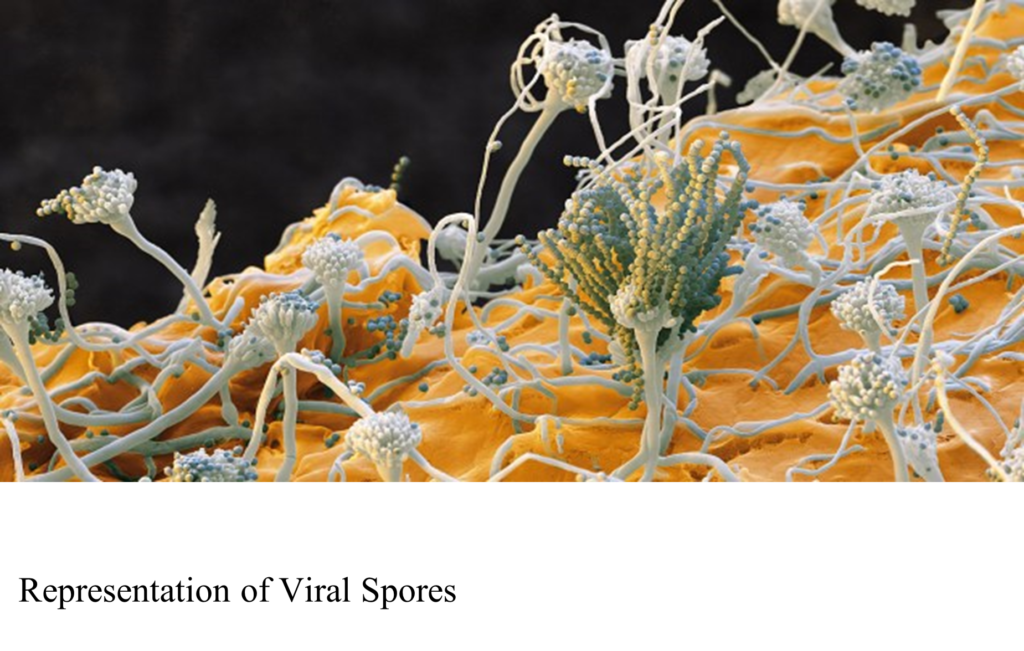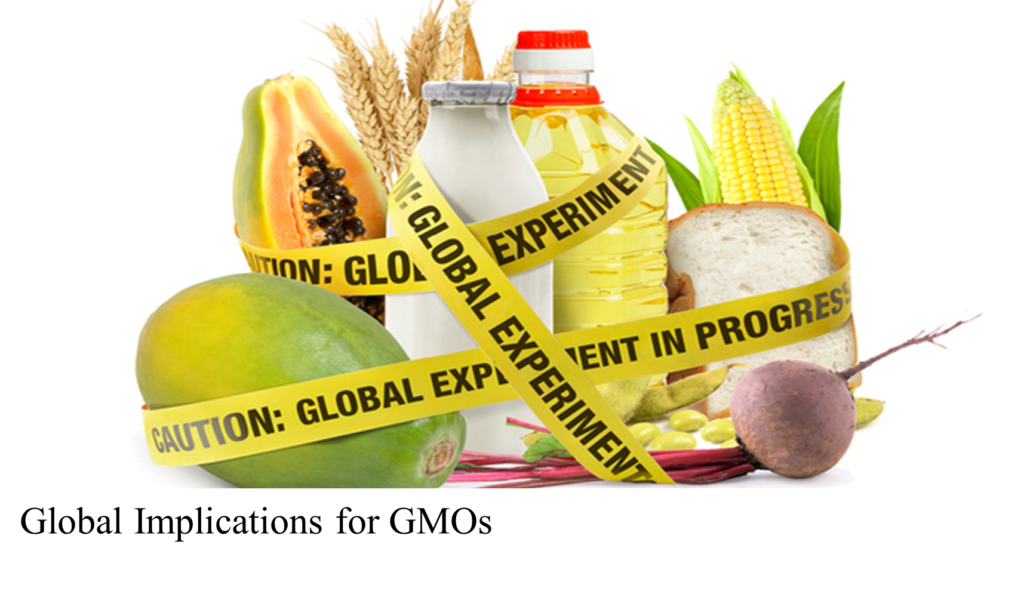The SARS virus have taken hold on the virologic community, having transformed standard scientific application for the management of viruses to now seeing the implications for these organisms in the field of bio-weaponry. The recent emergence of the COVID-19 SARS strain and the controversy surrounding its origins, must be examined in light of human efforts to manipulate the gnome of organisms not only for the holistic benefits to mankind, but also the negative effects of these actions and the unconscionable desire by many in genetic engineering to benefit financially without regard to human suffering. It is therefore imperative for persons to understand the journey of the science, and how profound genetic engineering has impacted our everyday use of goods and services.

The reality of the global village and marketplace has allowed technology and scientific breakthroughs to transcend borders and indeed ideology in finding solutions for domestic as well as international problems. Borders has now been transformed into bridges joining nations, cultures, ethnicities, and the sharing of scientific and technological discoveries to advance techniques and methodologies to improve productivity, well-being, and efficiency. The modern revolution of Genetically Modified Organisms (GMO’s) stands as the most pivotal discovery in science and technology over the last 20 years to provide long-term solutions for robustness of species and increased production. Adopting GMOs as the solution for heightened productivity in the global hunger problem is dodged by increased speculations regarding ethical and moral arguments against its use, while proponents argue that the end results of adequate provision of food for the majority justifies its use for the greater good. Using established ethical theories of the Deontological and Teleological views respectively, we discussed the varied positions for and against the use of GMOs with the results clearly showing that each position has merits in the ethical stance taken. The results clearly show that 53% of American say they knew little about genetically modified food, while 7 % favoring the labeling of GMO foods, while 63% stated they would be upset if they were served food grown by genetic engineering. Only 37% of Americans believe the use of GMO technology to be of significance to the global solution for improved medical solutions, hunger, and more efficient agricultural practices. Based on these results, GMOs are still seen in a negative light and is at risk of losing its significance and purpose if a proper strategy is not developed by government with the focus on education as the vehicle of change that drive moral and ethical thought.

Genetically Modified Organisms
Genetically modified organisms (GMO’s) are those whose genetic material has been artificially altered using genetic engineering techniques. This occur through laboratory processes where genes from the DNA of one species are extracted and artificially forced into the genes of an unrelated plant or animal to obtain a specific result. Foreign genes may be obtained from bacteria, viruses, insects, animals, or even humans. Genetically Modified Organisms represent the most revolutionary biotechnology pertinent to increased productivity in agricultural yields, providing solutions for conservation, biodiversity, superior species, and sustainability in feeding the world’s population. The presence of genetically engineered food is however not without its detractors with many seeing this technology as science interfering with the natural process of nature and the resulting species and food supply akin to the consumption of harmful low-quality food supplies.
The scientific consensus on GMO safety is strong compared to other biotechnologies with 88% of scientists believing Genetically modified food to be safe, the dilemma arose with the 12% of scientists who are disagreeable with this position and the belief and views of many people due to lack of education in informing the masses, and ethical and moral perspectives for and against the use of GMO’s. Additionally, many Americans (57%) feel genetically engineered foods are unsafe with a startling percentage (67%) doubting the validity of research by scientists. As a result, biotechnology is reasoned to be a disturbing practice by the general public compared to the views of scientists who have proposed that genetically modified foods are the most extensively tested crops and animal products ever added to our food chain. The general population are adamant for the government and scientific community to provide data/information on the labeling of GMO food items to identify and inform/educate the public of its safety for consumption.
The impact of genetically engineered food is central to the provision of adequacy of food supplies yet the efforts to gain acceptance is not driven by evidence that the foods are dangerous but by factors suggesting that the food is unnatural and potentially dangerous, and the requirement of labeling which demand legislation meant to alarm consumers, or the misconception that the reason for labeling is that GMO foods/crops are not rigorously tested to ensure safety. Another avenue for concern is that the creation and resulting increased production due to GMO technology is not disputed based on scientific evidence only, but by ethical and moral standards applicable to its use in food production. These issues on ethical standards demand that GMO food production be used only as a necessity and last resort; not as a preferred means of driving production, due to the implication of violating natural laws where the end results do not justify the means. Another school of thought on the ethical and moral aspects for the use of GMOs to increase food production is that the higher moral value is secondary to result of more production via GMO application guaranteeing sustainable food supplies. Either position has its merits as the ethical landscape will forever field these concerns as GMO’s affect societies through its social, cultural, economic, political, and environmental Impact.


12 thoughts on “Genetically Modified Organisms (GMOs)”
Wow, awesome blog format! How long have you been running a blog for? you made blogging glance easy. The full look of your web site is great, as well as the content material!!
I appreciate paying a visit to your blog site. You are without a doubt astute as well as write so properly. Kudos regarding working hard on this specific internet site.
Aw, this was a really nice post. In concept I want to put in writing like this moreover – taking time and actual effort to make a very good article… however what can I say… I procrastinate alot and in no way seem to get one thing done.
My partner and I stumbled over here different page and thought I may as well check things out. I like what I see so now i am following you. Look forward to checking out your web page for a second time.
My spouse and i felt quite joyous Peter could finish up his inquiry with the precious recommendations he came across while using the web page. It is now and again perplexing to just choose to be giving for free things that the rest have been making money from. And we keep in mind we have got you to thank for that. The specific illustrations you have made, the simple blog navigation, the friendships you can aid to foster – it is many unbelievable, and it’s helping our son in addition to us understand that concept is excellent, which is unbelievably serious. Many thanks for all!
I want to voice my admiration for your kindness supporting those people that actually need assistance with this important question. Your special commitment to passing the message all through had become extremely powerful and have in most cases enabled associates much like me to achieve their aims. Your personal warm and helpful tips and hints denotes this much a person like me and extremely more to my mates. Thanks a lot; from all of us.
Everyone loves what you guys are usually up too. Such clever work and exposure! Keep up the fantastic works guys I’ve added you guys to blogroll.
Definitely, what a magnificent site and educative posts, I will bookmark your site.All the Best!
I’m curious to find out what blog platform you’re working with? I’m experiencing some minor security issues with my latest blog and I would like to find something more safeguarded. Do you have any recommendations?
Thanks a lot for giving everyone such a brilliant chance to read critical reviews from this website. It’s usually very pleasurable and as well , full of amusement for me and my office mates to visit your blog at the least three times in 7 days to read through the new items you will have. And lastly, I’m also usually satisfied for the unbelievable opinions you serve. Certain 3 areas in this article are in reality the best we have all ever had.
We are a group of volunteers and starting a new scheme in our community. Your site offered us with valuable information to work on. You have done a formidable job and our entire community will be grateful to you.
Thanks for your personal marvelous posting! I really enjoyed reading it, you happen to be a great author.I will always bookmark your blog and will often come back in the foreseeable future. I want to encourage you to definitely continue your great job, have a nice morning!